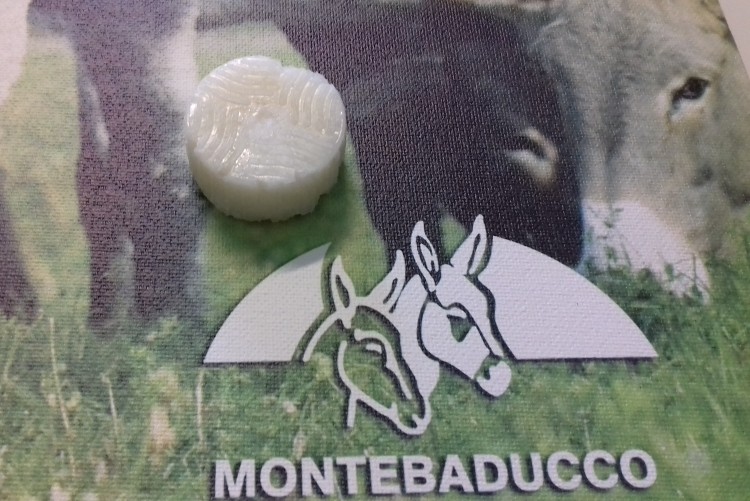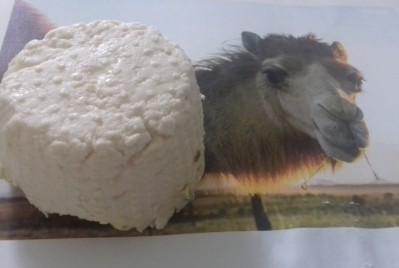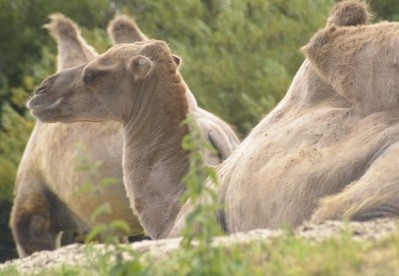Italian researcher solves donkey cheese puzzle

A decisive step in the possibility to use equid milk in the dairy sector, for cheese production, has been made recently, thanks to the findings of the Italian food technologist, Dr Giuseppe Iannella.
Iannella, from Food Science Research, Benevento, Italy, has discovered that pure camel chymosin, an enzyme found in camel rennet, is able to clot equid milk.
Historically, most cheesemakers have used animal rennet. Recently though, various factors have led to renewed interest in the use of plant-derived sources of milk coagulants for making cheese.
Such factors include the high price and limited availability of ruminant stomachs, dietary regimes such as lacto-vegetarianism, religious restrictions (i.e., Kosher and halal) or the ban on recombinant calf rennet in many European countries (e.g. France, Germany and the Netherlands).
The research has been directed towards discovering milk-clotting enzymes that would satisfactorily replace calf rennet in cheesemaking, including microbial, recombinant, and plant-based enzymes.
Use of chymosin
Like the animal chymosin, many plant milk clotting enzymes are included in the category of aspartic proteases and have the ability to cut K-casein.
Chymosin is the preferred enzyme in the cheese making process, since specificity for K-casein is high, and general proteolytic activity, especially with regard to milk proteins, is low.
Plant proteases generally have high proteolytic activity, because they also cleave α, β and γ caseins, which are responsible for the production of a soft paste texture and a typical aroma. This plant enzyme efficiently clots crude or pasteurized milk.
However, Iannella said, replacing animal rennet with milk-curdling enzymes from plants to make cheese is not the simplest solution because they show a broader proteolytic activity and are less suitable for cheese production, since bitter, hydrophobic peptides, formed by undesirable proteolytic action on caseins during coagulation and ripening, impair the sensory value of the cheese.
Plant extracts
Plant extracts have been used as milk coagulants in cheesemaking since ancient times, Iannella noted. Cheeses made with vegetable coagulant can be found mainly in Mediterranean, West African, and southern European countries.
Some examples include Indian fig (Opuntia ficus-indica), nettles (Urtica sp.), mallow (Malva spv Hibiscus sp.), creeping Charlie (Glechoma bederacea), Lady's Bedstraw (Galium verum) and thistles (different species of Compositae: Cynara cardunculus, C. humilis, Centaurea calcitrapa, Cirsium arietinum, Carlina spp.), among others.
The extracts from stems, leaves or flowers from different species of Cynara have long been used for traditional sheep cheese production in Mediterranean countries due to the presence of milk clotting enzymes.
The use of enzymes of Galium verum to curd sheep and goat’s milk in Tuscany seems to be due to its capacity to give the cheeses a sweeter and more pleasant taste, Iannella noted.
Since plant proteases have the capacity to cut β casein, according to Iannella, the key protein in the coagulation process of equid milk is the hydrolysis of β casein in place of the K-casein, so Iannella wanted to verify its effectiveness in donkey milk.
For a preliminary study, he wanted to try the vegetal coagulant “Galium-Prodor” (Cynara carduncolus and other plants, supplied by Laboratorio Prodor, Bobbio, Italy) for donkey’s milk coagulation.
Iannella’s “Nativity” equid cheese method (with plant protease):
1. Heating of donkey milk at 37°C (in water bath at 43°C)
2. addition of starter culture (lactic bacteria)
3. addition of plant protease of “Galium-Prodor”
4. coagulation for 5 hours
5. serum separation
6. curd in molds
7. seasoning at 8-10°C
Based on his preliminary study, Iannella verified it was possible to effectively curdle donkey milk through “Galiun-Prodor” coagulant (one teaspoon per liter of donkey milk), however he noted coagulation in a consistent curd is only possible in raw donkey milk that is not pasteurized.
Iannella obtained the milk for his experiment from Azienda agricola Montebaducco.
Cheese production conditions
For this reason, donkey's milk was warmed at 37°C in a bain-marie, and starter (thermophilic) lactic bacteria were added to improve the action of the plant coagulant and protect the donkey milk from the development of undesirable bacteria, Iannella said.
As in the previous method with camel chymosin, the coagulation time necessary to have a consistent curd with plant protease of “Galium-Prodor” is 5-6 hours. The yield in fresh donkey cheese is 3.5%, which Iannella said is an expected result because of the relatively low concentration of caseins and fats in donkey milk.
Iannella said the fresh donkey cheese does not exhibit abnormal flavors but reflects the taste of milk.
Iannella noted that donkey milk is a very different milk, in that:
- it does not curdle with common rennet (from his previous study only from pure camel chymosin)
- the pasteurization treatment prevents the subsequent coagulation
- the long coagulation times (5-6 h) are different to 40 minutes for other milks
- there is a need to heat donkey milk to bring it to the coagulation temperature (37°C) in a bain-marie
- there is a need to use acidifying starter cultures to improve coagulation on equid milk
Iannella also said he hypothesizes mare's milk, being very similar to donkey's milk, can be curdled with “Galium-Prodor” plant proteases.
Dr Giuseppe Iannella, of Food Science and Technology Research, in Benevento, Italy, can be reached at foodtech.iannella@gmail.com
SDT (w)










